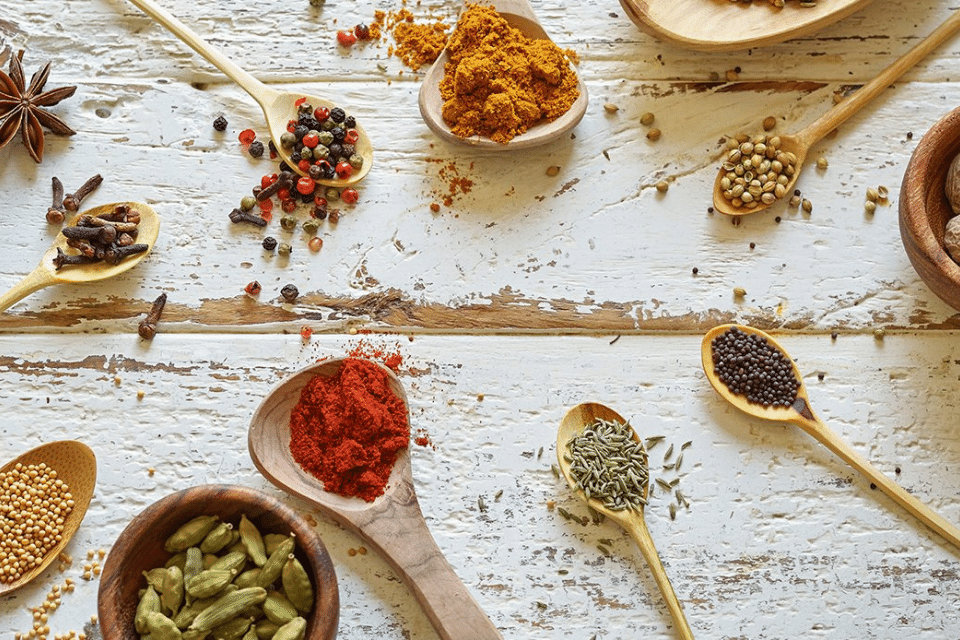Inflammatory bowel disease (IBD) largely encompasses Crohn’s disease and Ulcerative colitis. In IBD, the immune system is activated causing inflammation in the intestine often resulting in symptoms that may range from abdominal pain and diarrhea to dehydration and malnourishment. Nutrition plays a critical role in optimizing health in our IBD community. In fact, even when IBD patients have healed (quiescent inflammatory bowel disease), 30-50% may experience ongoing functional gastrointestinal symptoms such as irritable bowel syndrome.1-3 Some studies have demonstrated that up to 50% of IBD patients with quiescent disease may experience reduced symptoms on a low FODMAP regimen. 4-5
{% video_player “embed_player” overrideable=False, type=’scriptV4′, hide_playlist=True, viral_sharing=False, embed_button=False, autoplay=False, hidden_controls=False, loop=False, muted=False, full_width=False, width=’1280′, height=’720′, player_id=’35228029399′, style=” %}
These are but a few of the many key nutritional insights I would like to share when managing patients who are concerned about developing IBD and those that live with Crohn’s and ulcerative colitis daily.
Tip #1 Reducing Individual Risk of Developing IBD
Studies on how diet can influence active IBD are currently underway. However, we have learned much on factors associated with lowering one’s individual risk of developing IBD and factors that increase this risk instead.
Diets high in refined sugars and emulsifiers (eg, polysorbate-60, polysorbate-80, lecithin) found in many processed foods may increase the risk of developing IBD. Likewise, diets high in omega-6 polyunsaturated fatty acids (eg, corn or sunflower oil, margarine) and high in animal protein, in particular, processed red meat – have been associated with increasing the risk of IBD. Notably, diets high in fiber such as fruits and vegetables have been demonstrated to lower the risk of IBD.6,7,8,9
Tip #2 Be Proactive – Assess for Nutrient Deficiency
Malnourishment is common in IBD patients. It may result from malabsorption from inflamed segments or from the surgical resection of those same segments. Likewise, the symptoms can be so debilitating that malnutrition may ensue simply from a complete loss of appetite.
One of the most common deficiencies observed is iron deficiency anemia from chronic blood loss from the intestinal ulcers. Different segments of small bowel are responsible for absorption of specific nutrients. Small bowel inflammation may result in deficiencies in fat soluble vitamins such as Vitamin A, D, E and K or of critical elements such as magnesium or zinc. Ileal inflammation may impair B12 or folate absorption from our diet. Chronic vomiting or diarrhea promotes low potassium. Some medications such as prednisone can cause low calcium and Vitamin D which are essential to strong bone health. Other medications such as methotrexate or sulfasalazine can promote folate deficiency as well. 9
Careful assessment and proactive supplementation through diet or nutrient supplements is critical to providing comprehensive and complete counseling to our IBD patients.
Tip #3 Prepare & Beware of Flare
Some patients with IBD may experience intermittent flares during which their nutrition can suffer. In the early phases of a flare, we typically recommend aggressive oral hydration and small but frequent high calorie meals throughout the day.
Common pitfalls of nutrition while in flare include consumption of dairy. The lactose sugar in dairy can become fermented by gut bacteria and cause uncomfortable bloat, cramps and even diarrhea. Likewise, added or hidden sugars found in comfort foods such as high fructose laden sodas, sweets and candies can accelerate the overgrowth of fermentative bacteria exacerbating abdominal bloat and cramp. As appetite returns we encourage nutritious foods, but caution that insoluble fiber can exacerbate intestinal distress by drawing water into the intestine. This can be reduced by peeling the skins off of fruits and vegetables and softening the texture of the fruit/vegetable pulp by steaming or boiling. 10
Some foods that may be easier to digest but provide nutrition are bananas, white rice, white breads and even applesauce. Healthy protein sources may include steamed or broiled fish, or nut butters (eg, peanut, almond, cashew), tofu (eg, soy or pumpkin seed). Of course, please remember to hydrate with increased water intake.
Nutritional screening and proactive management are necessary to provide optimal IBD care if we are to improve their health and quality of life. I hope these insights have been helpful to you and your patient care. Thank you for reading and joining me. You can follow my educational exploits on all major social media platforms @fitwitmd.
References
- Halpin SJ, Ford AC. Prevalence of symptoms meeting criteria for irritable bowel syndrome in inflammatory bowel disease: systematic review and meta-analysis. Am J Gastroenterol 2012;107:1474–82.
- Gibson PR. Use of the low-FODMAP diet in inflammatory bowel disease. J Gastroenterol Hepatol 2017;32 Suppl 1:40–42.
- Colombel JF, Shin A, Gibson PR. AGA Clinical practice update on functional gastrointestinal symptoms in patients with inflammatory bowel disease: expert review. Clin Gastro Hep 2019(17)3:380-390.
- Gibson PR. Use of the low-FODMAP diet in inflammatory bowel disease. J Gastroenterol Hepatol 2017;32 Suppl 1:40–42.
- Cox SR, Prince AC, Myers CE, et al. Fermentable carbohydrates (FODMAPs) exacerbate functional gastrointestinal symptoms in patients with inflammatory bowel disease: a randomised, double-blind, placebo-controlled, cross-over, re-challenge trial. J Crohns Colitis 2017.
- Andersen V, Olsen A, Carbonnel F, Tjonneland A, Vogel U. Diet and risk of inflammatory bowel disease. Dig Liv Dis 2012(44)3:185-194.
- Forbes, et al. ESPEN guideline: Clinical nutrition in inflammatory bowel disease. Clin Nutr 2017(36):321-347.
- Hansen TS, et al. Environmental factors in inflammatory bowel disease: A case-control study based on a Danish inception cohort. Journal of Crohn’s and Colitis, Volume 5, Issue 6, December 2011, Pages 577–584.
- Roberts CL, et al. Hypothesis: Increased consumption of emulsifiers as an explanation for the rising incidence of Crohn’s disease. Journal of Crohn’s and Colitis, Volume 7, Issue 4, May 2013, Pages 338–341.
- Ghishan FK, Kiela PR. Vitamins and minerals in IBD. Gastroenterol Clin North Am. 2017 December ; 46(4): 797–808.
- Brown AC, Rampertab D, Mullin GE. Existing dietary guidelines for Crohn’s disease and ulcerative colitis. Exp Rev Gastro Hep 2011(5):3;411-425.


